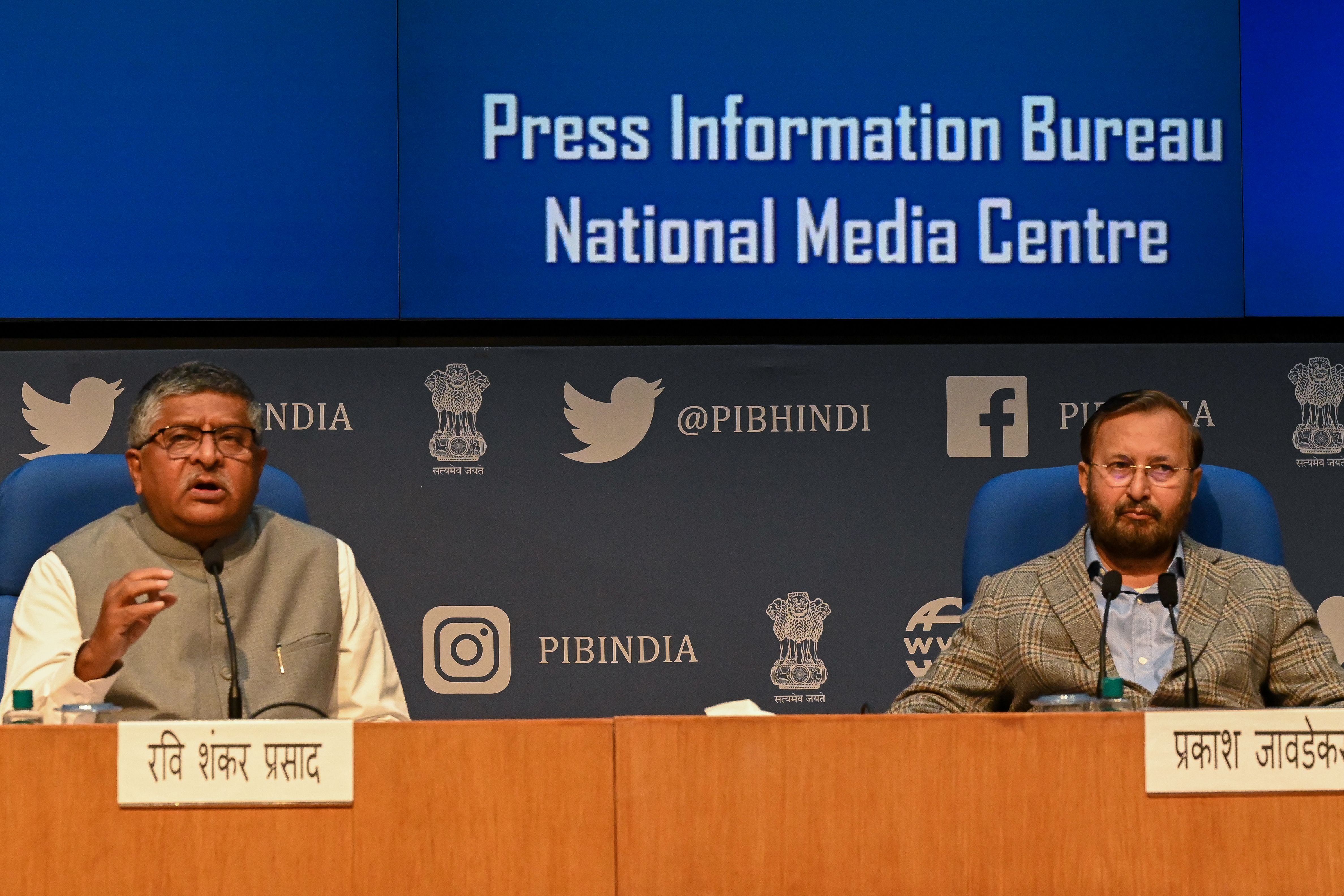Streaming platforms must be accountable for their content, India says, amid Netflix censorship row
Complaints about ‘hurt religious sentiments’ have spiked

Your support helps us to tell the story
From reproductive rights to climate change to Big Tech, The Independent is on the ground when the story is developing. Whether it's investigating the financials of Elon Musk's pro-Trump PAC or producing our latest documentary, 'The A Word', which shines a light on the American women fighting for reproductive rights, we know how important it is to parse out the facts from the messaging.
At such a critical moment in US history, we need reporters on the ground. Your donation allows us to keep sending journalists to speak to both sides of the story.
The Independent is trusted by Americans across the entire political spectrum. And unlike many other quality news outlets, we choose not to lock Americans out of our reporting and analysis with paywalls. We believe quality journalism should be available to everyone, paid for by those who can afford it.
Your support makes all the difference.Over-the-top (OTT) platforms such as Netflix and Amazon Prime will have to be “responsible and accountable” for their content, India’s technology minister has said, as the country tightens its grip on video streaming services.
Minister of Electronics and Information Technology Ravi Shankar Prasad, while defending a new law that requires platforms to take down content flagged by authorities, said on Thursday that if companies had creative right, others had the right to grievance.
His comments came amidst a spike in complaints against shows.
"India is tolerant and will remain tolerant," Mr Prasad said. "But the limits of tolerance and standards of tolerance should not be judged on the creating freedom or abuse of a particular producer of an OTT platform," he said.
The government in February announced sweeping regulations for OTT platforms as well as social media firms such as Facebook and Twitter, entitled "Intermediary Guidelines and Digital Media Ethics Code," requiring them to set up a complaint redressal system, appoint a new executive in the country to coordinate with law enforcement, and remove any content flagged by authorities within 36 hours.
Under the new law, the regulation mechanism for OTT platforms like Netflix, YouTube, and others, will be divided into three levels. It will begin with self-regulation by the content platform and end with a government-appointed panel headed by a ministry official. It will also require them to self-classify their content into five categories based on age suitability.
Read more:
The comments assume significance due to the growing number of complaints lodged against shows and movies released on the OTT platforms for content that allegedly hurts Hindu religious sentiment. OTT services deliver content directly to the viewer, hence, do not have a rigorous censoring process for the release, unlike theatre releases in the country.
Recently, a senior Amazon Prime executive in the country was questioned for hours by the police over a complaint filed against the platform’s political drama series Tandav for hurting religious sentiments, after which Amazon and the show’s cast and producers issued an apology.
The child rights commission in the country also sent notice to the Netflix show Bombay Begums to complain about the alleged inappropriate portrayal of children.
Another popular drama series entitled Mirzapur was pulled up by the country’s top court for “maligning” the image of a city of the same name in the northern state of Uttar Pradesh.
Rights groups say such complaints are part of the larger pattern of intolerance and a move to curb free speech in the country.
Join our commenting forum
Join thought-provoking conversations, follow other Independent readers and see their replies
Comments